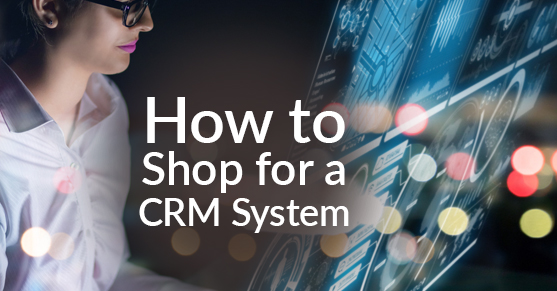Customer Relationship Management (CRM) software has evolved from a niche business system for helping companies maintain and grow relationships with new and existing clients organization-wide tools. Most CRMs these days can help with customer relations and include features for sales, marketing, accounting, vendors, promotions, and a whole list of other operations. In a market like this — one flooded with platforms offering competing features and competing prices — it’s hard to sift through the options.
First, when you’re shopping for a CRM software, you need to begin your journey through the catalog of platforms and vendors by asking some vital questions. Initially, you’ll want to look into your internal operations and evaluate where a CRM system could enhance processes and productivity. Where are the inefficiencies within your company? What tasks, issues, and departments are you looking to improve with a CRM system? Do you lack concise workflows for specific processes? Do you need additional areas of operation?
Next, you’ll want to look to users for information: who will be using the CRM system, and how many users will there be? What are you looking for when it comes to a user-friendly interface on the customer’s side of the CRM system? What current software and applications are we going to integrate? Finally, you’ll want to ask the big question: What is the budget?
After you’ve taken an in-depth look into what you and your team want from a CRM system, you’re ready to start shopping.
Cloud or On-Premise Deployment
When you’re dealing with any new software these days, deciding on whether to deploy in the cloud or on-premise is very important. Both have their pros and cons, and it comes down to which solution you think would better-match the needs of your business. For instance, on-premise systems give you direct access to servers, control of the system, and you’ll have internal storage. However, on-premise solutions typically need ongoing maintenance support (either internal or third-party), and initial costs can be pretty high (although down the road it pays off).
On the other hand, deploying a cloud solution can come with little to no hardware, no additional changes in infrastructure or servers, and it’s generally a small cost to the business for maintenance and upkeep services. But, your company may be prone to additional security services for data storage in the cloud, and over time, it can end up costing more than on-prem servers.
Whichever option fits into your business plan and aligns with your strategy, that’s the one for you.
Features
You may be looking for specific features that match up with the answers you came up with from the questions above; that’s another aspect of CRM platforms to keep in mind. You may be looking to enhance your leads and sales, or maybe you’re looking to beef up your marketing tools. Or, perhaps you’re looking for something entirely different, like improving reports and getting precise analytics and dashboards. Whatever it is, you need to pick what features are a priority and keep those in mind when you’re perusing offers.
Customization and Industry Specifications
What do you get when you have a brand new, shiny CRM software, but it’s not configured to match the needs of your business? A waste of money.
If you want customization for industry-specific needs, then your CRM ought to be flexible enough to reflect the processes, strategies, and goals that your business is looking to improve. In most cases, you might need an experienced partner like XTIVIA to do the heavy lifting when it comes to customizing your CRM environment. Still, there are opportunities when a CRM and company naturally pair well together.
Application and Software Integration
Your company probably already has a list of business software and applications that are detrimental to your day-to-day operations. Your new CRM system needs to integrate with these existing necessities without friction, and most platforms will have a list of integrations. Just as crucial as the integrations themselves is the migration of data and the ability of the software to collect data from disparate sources.
User Experience
Just like customization, if you have a new CRM system, but it’s not user-friendly, and you don’t have the resources to conduct training sessions, then the product is virtually useless. So, the best course of action before signing the check is to review the product from the user perspective. Additionally, after you’ve decided on a CM to implement, you’ll want to set it up alongside an administrator. Doing this will not only ensure that you get the features and functionality you’re looking for, but it will also guarantee that your employees get a system they can use easily.
Compliance
Privacy and security are the most important factors when it comes to customer data, so the system you choose needs to have the functionality to attain and maintain compliance. The GDPR and CCPA are no joke, and without strict adherence to their rules, companies working with anyone in Europe or California could be subject to massive fines and huge losses. So, review the contents of these regulations and acts, review the materials of NIST as well, and evaluate the compliance potential of the CRM system you’re considering. Not only will this protect the data of your customers, but it will also protect the integrity and fruition of your enterprise.
Searching for the right CRM system takes a lot of effort, but the expansive payout into each area of your business is well worth the time. If you have questions about how to best begin the CRM shopping journey, feel free to engage with us via the comments below or reach out to us here.
This post was originally published here.

